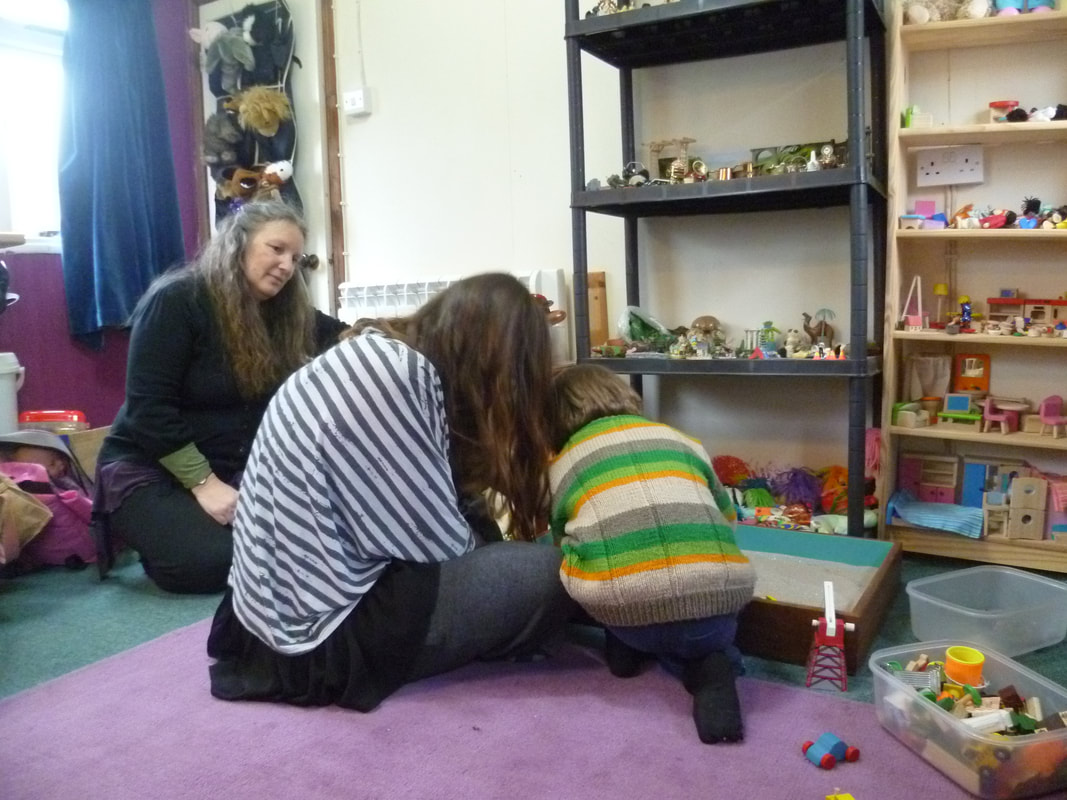Parent/Carer and Child Programmes.The play kit and skills are tailored to each family, with the practitioner trained in both talking and in play/creative arts therapies, alongside filial play coaching informed work through CPD. Other models similarly include Theraplay (R) (Levels 1&2) for enhancing attachment and Dyadic Developmental Psychotherapy (Levels 1 & 2) talking approach for older clients. This combination of skills offers parents and carers a programme of support to enhance their skills of playing and relating with their child in a child-led ways. This enables their relationship with the children to build or rebuild positively in a natural, non-threatening way.
The main work for filial play coaching informed work is done at home between the parent/carer and child, for an achievable 10 minutes a day, 5 days per week, with meetings with the filial play coach each week to support the parent/carer sensitively with a flexible programme which works for each family individually within the professional framework. Theraplay(R) and DDP are done with the parents/carers and child separately or together with the therapist. |
Filial Play Skills
Boundaries
Consistency and Predictability Focussing on the child Reflecting Giving Choices back to the child |
Coaching Model
Identify needs
Goal setting Planning Action Feedback and Guidance |
Programme
20 sessions:
Preparation Weekly Play Observations paired with Feedback and Guidance Sessions Reviews Supportive ending |
Progress
Measured by standardised play observation frameworks
Evaluated with pre and post programme assessments Relational, Emotional, Behavioural and Concentration Strengths and difficulties of child assessed as an indicator of change |


